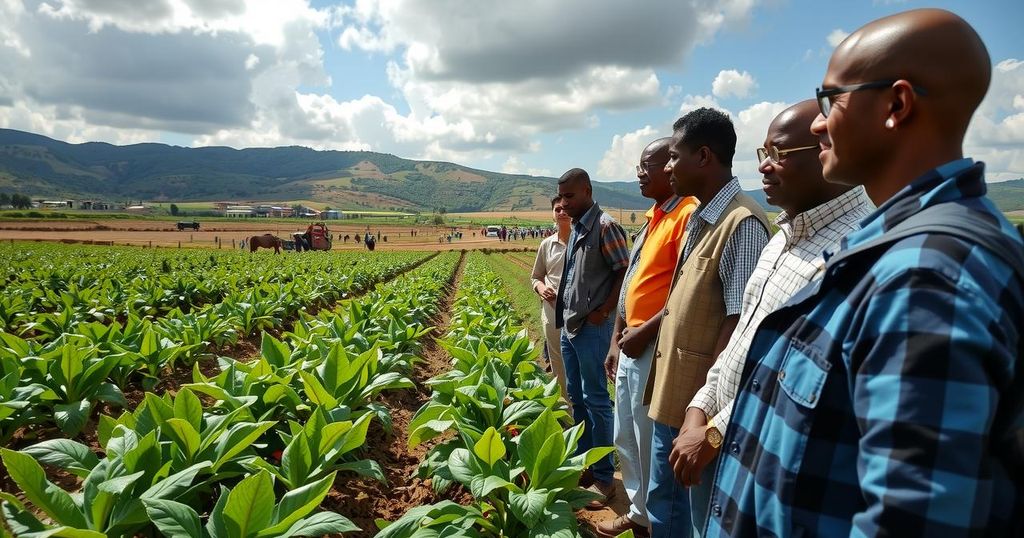Sierra Leone and Guinea Leaders Explore Ethiopia’s Agricultural Advances at World Without Hunger Conference
Leaders from Sierra Leone and Guinea visited Ethiopia’s successful household farms during the World Without Hunger Conference. Their tour highlighted Ethiopia’s agricultural advancements in vegetable cultivation, dairy, and poultry farming. The conference draws over 1,500 stakeholders to address global hunger and food security, with expectations of issuing the ‘Addis Ababa Declaration.’
On November 7, 2024, President Julius Maada Bio of Sierra Leone and Prime Minister Mamadou Oury Bah of the Republic of Guinea visited successful household farms in the East Showa zone of Oromia, Ethiopia. Their visit occurred during the World Without Hunger Conference in Addis Ababa, which focuses on addressing global hunger and enhancing food security. The leaders toured farms engaged in agricultural transformation efforts, including vegetable cultivation, dairy farming, and poultry production, demonstrating Ethiopia’s advancements in agricultural development.
Ethiopia has initiated significant agricultural reforms aimed at achieving food security and economic growth. The World Without Hunger Conference serves as a global platform for dialogue among key stakeholders, including government officials and international organizations, to devise solutions to mitigate hunger. This year marks a focused effort on collaborative initiatives that integrate sustainable agricultural practices and investment opportunities within the sector, highlighting Ethiopia’s role as a leader in agricultural development in Africa.
The visit by Sierra Leone’s and Guinea’s leaders underscores the importance of collaborative international efforts to combat hunger and enhance agricultural practices. The ongoing discussions at the World Without Hunger Conference aim to conclude with the formulation of the ‘Addis Ababa Declaration,’ setting a direction for coordinated action towards a hunger-free future. Ethiopia’s achievements in transforming its agricultural sector serve as an inspiring model for other countries.
Original Source: www.ena.et




Post Comment